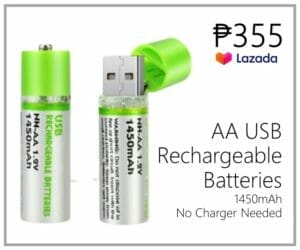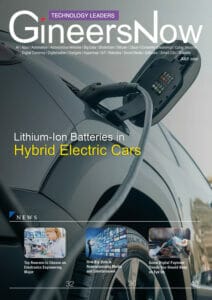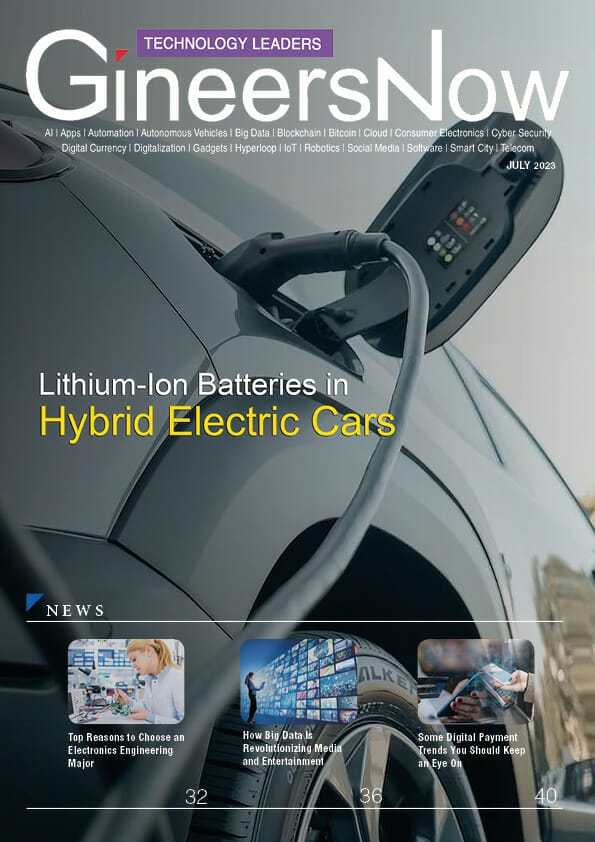Hybrid electric cars have become increasingly popular in recent years due to their fuel efficiency and eco-friendliness. These vehicles utilize a combination of gasoline engines and electric motors, allowing for reduced emissions and better gas mileage. However, the technology behind these cars is not without its faults. One crucial component of hybrid electric cars is the lithium-ion battery that powers the electric motor. While these batteries have revolutionized the industry with their high energy density and long lifespan, they also come with potential risks and drawbacks that are not widely known to consumers. In this article, we will explore the shocking truth about lithium-ion batteries in hybrid electric cars and examine how they could affect both drivers and the environment.
What are lithium-ion batteries?
Lithium-ion batteries are the power source for many of today’s electronic devices, such as laptops, smartphones, and tablets. These batteries have become increasingly popular due to their high energy density, lightweight, and long life span. In addition to being used in small electronics, lithium-ion batteries are also commonly used in hybrid electric cars.
Lithium-ion batteries were first developed in the 1980s by John B. Goodenough and his team at Oxford University. The technology quickly gained popularity due to its ability to store large amounts of energy in a small space. Lithium-ion batteries work by allowing ions to move between two electrodes – one positive electrode (the cathode) and one negative electrode (the anode). This movement of ions creates an electrical current that can be harnessed as power.

Benefits of Lithium-Ion Batteries
Batteries made of lithium-ion are quickly becoming the go-to power source for hybrid electric cars. And for good reason! These batteries offer a number of benefits that simply can’t be matched by other types of batteries.
First and foremost, lithium-ion batteries have an incredibly long lifespan compared to other battery types. This is due to the fact that they are able to withstand thousands of charge cycles without significant degradation in performance. In contrast, other battery chemistries tend to wear out much more quickly, requiring frequent replacement and contributing to environmental waste.
In addition to their longevity, lithium-ion batteries also boast a higher energy density than other popular battery types like nickel-metal hydride (NiMH). This means they can store more energy in a smaller package, allowing for greater driving range and improved overall vehicle efficiency.

Lithium-Ion Batteries in Hybrid Electric Cars
Lithium-ion batteries are an essential component of hybrid electric cars. These batteries store the electrical energy that powers the car’s electric motor, allowing it to run on electricity alone or in combination with a gasoline engine. Lithium-ion batteries are highly efficient and have a high energy density, which means they can store more energy in a smaller space than other types of batteries.
Hybrid electric cars use regenerative braking technology to recharge their lithium-ion batteries while driving. When the driver applies the brakes, the kinetic energy generated by the car’s motion is converted into electrical energy and stored in the battery. This process helps to extend the range of hybrid electric cars and reduce their dependence on gasoline.
Batteries made of lithium-ion are important for several reasons. First, they offer significant environmental benefits by reducing emissions and improving fuel efficiency compared to traditional gasoline-powered vehicles.

Why Lithium-Ion Batteries Are Important for Hybrid Electric Cars
Lithium-ion batteries have been a game-changer for the hybrid electric car industry. These batteries have a high energy density and can store a large amount of energy in a compact space, making them ideal for use in electric vehicles. The use of lithium-ion batteries in hybrid electric cars has significantly increased the efficiency of these vehicles, allowing them to run on electricity instead of gasoline.
The main benefit of using lithium-ion batteries in hybrid electric cars is their ability to store energy efficiently. These batteries can store more energy per unit weight than traditional lead-acid or nickel-metal hydride (NiMH) batteries, previously used in many hybrid cars. Lithium-ion batteries also have a longer lifespan and are less prone to failure than other rechargeable cells.
Furthermore, lithium-ion battery technology allows faster charging times than other rechargeable cells.

The Rise of Hybrid Electric Cars: A Brief Overview
Hybrid electric cars have been gaining popularity in recent years, and for a good reason. They offer a more sustainable and efficient way of transportation while still delivering the performance that drivers want. One of the main components that have contributed to the success of these vehicles is lithium-ion batteries.
Lithium-ion batteries are rechargeable power sources that provide energy for hybrid electric cars. They store electricity generated by regenerative braking systems and the vehicle’s engine, which can be used later to power an electric motor or assist with acceleration. Batteries made of lithium-ion are lightweight, compact, and have a high energy density, making them ideal for use in hybrid electric cars.
Moreover, these batteries can last for several years before needing replacement. This longevity has helped reduce the cost of owning a hybrid electric car over time since battery replacements were once quite expensive.
Understanding Lithium-Ion Batteries and How They Work
Lithium-ion batteries are a type of rechargeable battery commonly used in hybrid electric cars due to their high energy density and long lifespan. Understanding how they work can help car owners maximize their performance and ensure their safety.
At the heart of a lithium-ion battery is an electrolyte that allows the flow of ions between two electrodes, the anode and cathode, separated by a membrane. When charged, lithium ions move from the cathode to the anode through the electrolyte, where they become embedded in graphite layers on the surface. During discharge, these embedded ions move back to the cathode through the electrolyte, generating an electrical current that powers devices connected to it.
However, batteries made of lithium-ion require careful handling as they are prone to overheating and even catching fire if damaged or improperly charged.
The Environmental Impact of Lithium-Ion Batteries in Hybrid Electric Cars
Lithium-ion batteries have revolutionized the automotive industry, powering the electric motors in hybrid cars around the world. Though these batteries are considered a much more environmentally friendly alternative to traditional gasoline-powered vehicles, they negatively impact our planet.
One of the major environmental issues with lithium-ion batteries is their production process. The mining and extraction of lithium and other metals required for battery production can cause significant air, water, and soil pollution. Many of these materials are also found in countries with lax environmental regulations, which can exacerbate these problems.
Another issue is that lithium-ion batteries are not currently recyclable on a large scale. This means that once they reach the end of their lifespan (usually around 10 years), they must be disposed of in landfills or incinerated, both of which contribute to further pollution and greenhouse gas emissions.
The Dark Side of Lithium-Ion Batteries: Safety Concerns
Batteries made of lithium-ion are popular for powering hybrid electric cars due to their high energy density and long lifespan. However, the use of these batteries has raised safety concerns as well. The dark side of lithium-ion batteries is that they are prone to overheating, which can lead to fires and explosions.
The reason behind this danger is the highly flammable electrolyte solution used in these batteries. If there is any damage to the battery or if it gets too hot, it can cause a short circuit and ignite the electrolyte solution, resulting in an explosion and fire. Factors such as overcharging, exposure to high temperatures, or physical damage during transportation or usage can cause overheating.
Several incidents have been reported where lithium-ion batteries have exploded, resulting in loss of life and property damage.
Read GineersNow Technology Magazine for FREE
Editor’s Note: Lithium-Ion Batteries in Hybrid Electric Cars
Batteries made of lithium-ion have become the go-to power source for Hybrid Electric Vehicles (HEVs), and for a good reason. They are smaller, lighter, and can hold more energy than any other rechargeable battery technology available today. However, as with any technological breakthrough, hidden risks often emerge over time. In recent years, reports of lithium-ion batteries exploding or catching fire have sent shockwaves through the auto industry and raised serious concerns about their safety in hybrid electric cars. In this article, we will explore the shocking truth about lithium-ion batteries in HEVs and what you need to know to stay safe on the road.
While lithium-ion batteries have revolutionized the automotive industry with their efficiency and power, there are still concerns about their safety and environmental impact. Hybrid electric cars are becoming increasingly popular as a more sustainable mode of transportation, but consumers should be aware of the risks associated with their lithium-ion batteries. As technology improves and research continues, it is possible that safer and more environmentally friendly alternatives will be developed. In the meantime, it is important for manufacturers to prioritize safety measures in their battery designs and for consumers to dispose of used batteries properly. Together, we can work towards a cleaner and safer future for our planet.

Final Thoughts: Striking the Balance Between Efficiency, Sustainability, and Safety
In conclusion, while lithium-ion batteries have revolutionized the world of electric and hybrid cars, it is important to acknowledge their limitations. These batteries are not only costly but can also cause serious safety hazards when mishandled or mistreated. It is imperative for manufacturers to continue investing in research and development that will allow for more efficient and safer battery technologies. As consumers, we must also educate ourselves about the risks associated with these batteries and take cautionary measures to ensure their proper use and disposal. In the end, our collective effort toward a cleaner and more sustainable future must not come at the cost of human safety or environmental degradation.









